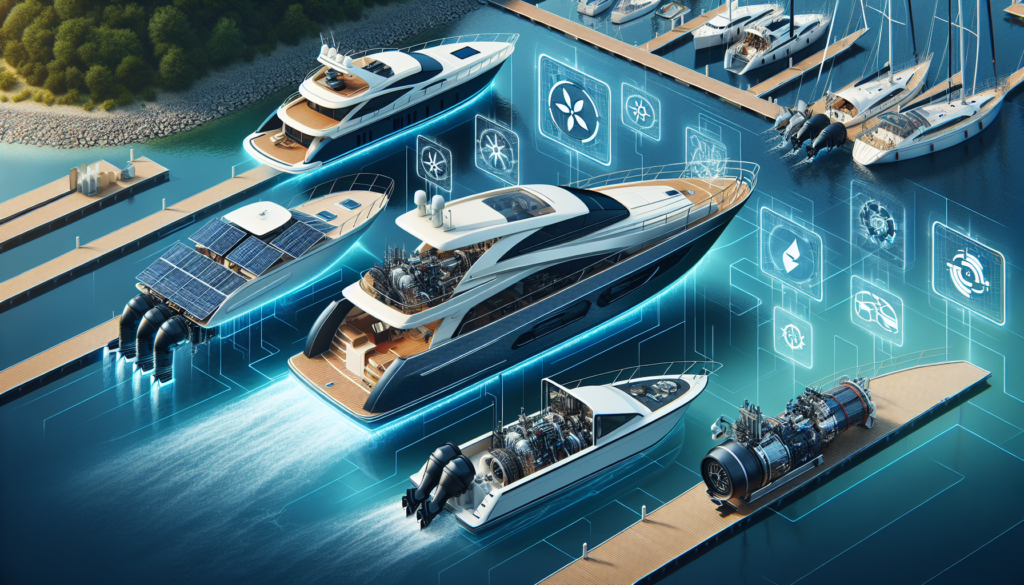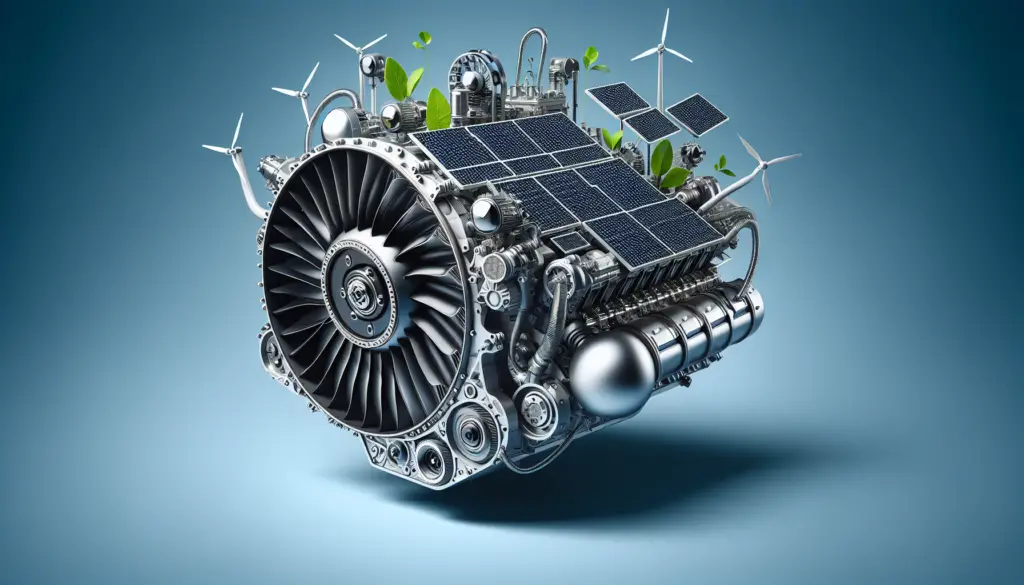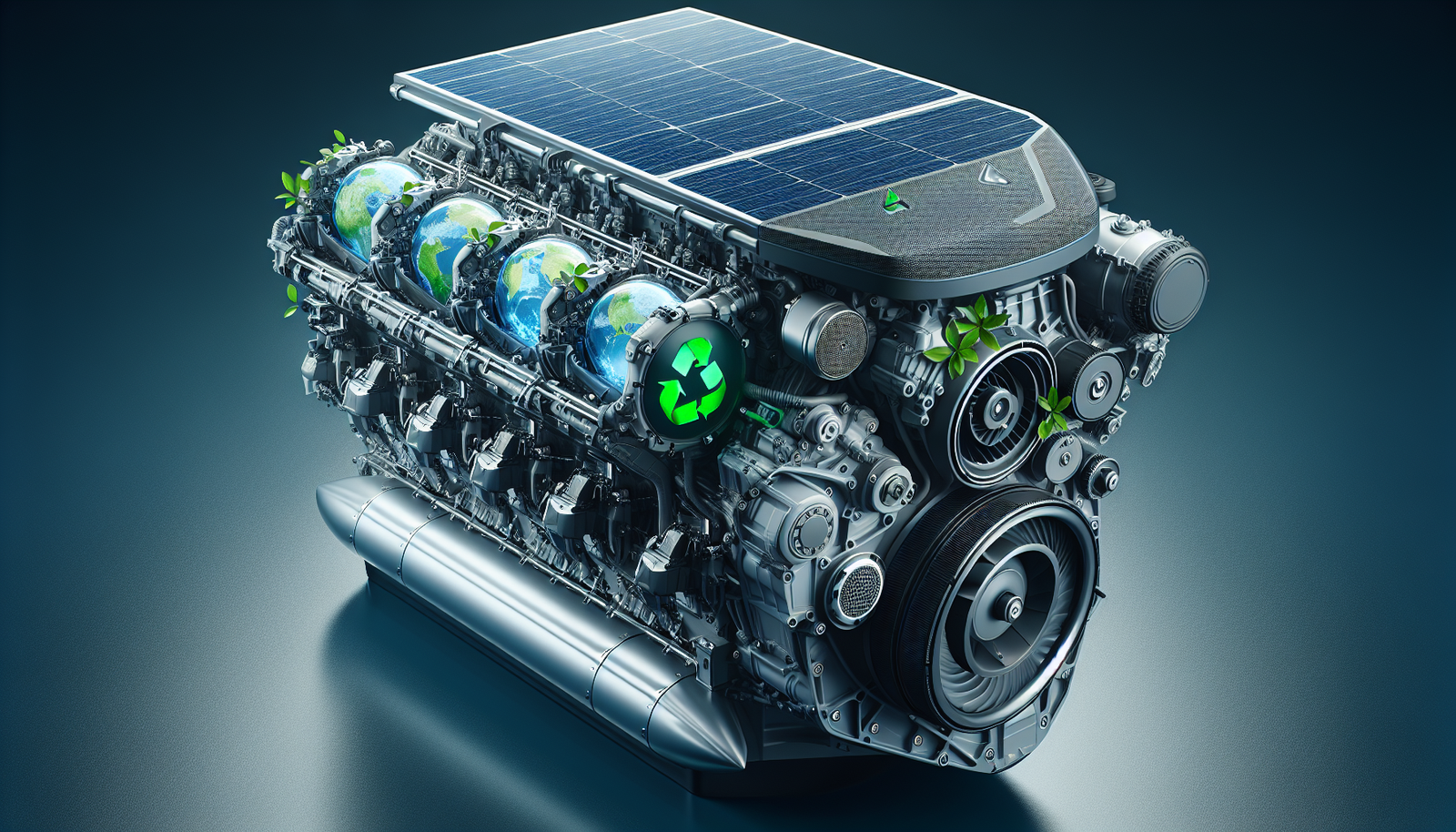If sailing the seven seas is your thing, but you’re also conscious about your carbon footprint, “The Best Environmentally-friendly Boat Engine Options” might be the guide you’re searching for. This article navigates you through greener ways to power your marine adventures, showcasing a selection of boat engines that embrace both performance and environmental responsibility. So, anchor down and prepare to embark on a riveting journey of discovering the best sustainable engine options that can make your boating experience ecological and enjoyable.

Understanding the Need for Environmentally Friendly Boat Engines
As growing numbers of people are becoming more environmentally conscious, you too might be contemplating how to reduce your carbon footprint. One area that you could consider is boating. Traditional boat engines could have significant environmental impacts, and this realization could be the gateway to more eco-friendly alternatives.
Environmental Concerns for Conventional Boat Engines
Your traditional boat engine, although more efficient today than in previous years, still raises fundamental environmental issues. These engines typically run on conventional fuels such as diesel or gasoline, which, when burned, release greenhouse gases that contribute significantly to climate change. Aside from the pollution from exhaust, old or improperly maintained engines could also leak oil or fuel into the water, causing additional harms.
Reduction of Carbon Footprint in Marine Industry
The marine industry, including recreational boating, has seen an increasing emphasis on reducing its carbon footprint. The call to transition to sustainable and renewable energy sources in this sector echoes the global movement towards a cleaner, healthier environment. This change isn’t just about preserving our planet for future generations, but it’s also an excellent opportunity for you to align your passion for boating with your commitment to sustainability.
Impact on Marine Ecosystems
Outboard and inboard motor engines often leak fuel and oil, causing water pollution and detrimental effects on marine life. Feeding our love for boating should not come at the expense of marine ecosystems. Being environmentally responsible means recognizing the potential effects on underwater flora and fauna and making choices that minimize harm.
Electric Boat Engines
With the rise and shine of electric vehicles, you might wonder if a similar revolution is possible within boating. And the answer is yes! Electric boat engines have emerged as an alternative to their fuel-consuming counterparts.
Advantages of Electric Boat Engines
Electric boat engines offer the advantage of quiet operation, reducing noise pollution considerably, adding another layer of peace while you’re on the water. They also require less maintenance than conventional engines, saving you cost and effort in the long run. Moreover, they operate without emitting harmful pollutants, which is a big step towards preserving marine ecosystems.
Challenges with Electric Boat Engines
However, it’s essential to consider the limitations. Electric engines have a limited range, which might make long trips a challenge. Also, the initial setup cost is higher than traditional engines, and battery life can be a concern. But with advancements in technology, these drawbacks are expected to lessen over time.
Leading Brands and Models in Electric Boat Engines
Leaders in the electric boat engine market like Torqeedo and Elco Motor Yachts offer a range of models that cater to different needs. While Torqeedo is known for their portable and lightweight outboards, Elco specializes in inboard systems, ideal for larger boats.

Hybrid Boat Engines
As the name suggests, hybrid boat engines combine the best of both worlds – traditional fuels and electrical power.
How Hybrid Boat Engines Work
Hybrid boat engines operate by starting with the combustion engine and then switching to the electric motor when the boat’s up to speed. This way, you enjoy the power of a conventional engine and the quietness and sustainability of an electric motor.
Benefits of Hybrid Boat Engines
Using less fuel than traditional engines, hybrid engines help lower emissions while providing customers with a desirable range for longer journeys.
Drawbacks of Hybrid Engines
Despite the benefits, there are some drawbacks to consider. Hybrid engines can be more expensive than conventional engines, and their complexity might demand high maintenance.
Top Models of Hybrid Engines
Renowned manufacturers like Mercury Marine and Volvo Penta have various hybrid engine models for their customer base.
Solar-Powered Boat Engines
Let’s now turn our attention to boat engines that harness the power of the sun.
The Science Behind Solar-Powered Boat Engines
Solar-powered boat engines work by converting the sun’s energy into electricity, which is then stored in batteries. This power is used to drive the motor and run any on-board systems.
Advantages and Limitations of Solar-Powered Boat Engines
The big advantage of solar-powered boat engines is their fuel-free operation, meaning zero emissions, zero noise, and nearly zero running costs. However, their effectiveness is greatly dependant on the weather conditions, and they can be slow compared to other types of engines.
Innovations in Solar-Powered Boating Technology
Innovations in solar-powered boating technology, like the inclusion of more efficient panels and advanced battery storage systems, aim to tackle these limitations and make solar-powered boating more practical for everyday use.

Biofuel Boat Engines
Another alternative to conventional boat engines is those that run on biofuels.
Understanding Biofuels in Boating
Biofuels, derived from renewable sources like plant oils and animal fats, are a more environmentally friendly alternative to traditional boat fuels.
Benefits of Biofuel Boat Engines
Biofuels considerably reduce greenhouse gas emissions when compared to traditional fuels. Moreover, these fuels are biodegradable and non-toxic, reducing the risk of damaging marine life through fuel leaks or spills.
Considerations When Using Biofuel Boat Engines
One thing to bear in mind is that not all engines can run on biofuels without modifications, and not all marinas have biofuel available. Also, some biofuels could gel in cold weather, which you might want to consider if you’re in a colder climate.
Propane Boat Engines
In the list of clean fuel options, propane stands out for its efficiency and accessibility.
Propane as a Clean Fuel Option
Propane contains fewer carbon atoms than other fuels, which leads to fewer emissions. Plus, it’s widely available and often cheaper than gasoline.
Pros and Cons of Propane Boat Engines
While propane engines run cleaner and quieter than traditional engines, they may not offer the same power output. Propane is also heavier than air, making leaks more dangerous as they can potentially gather in low areas of your boat.
Safety Considerations for Propane Marine Engine Users
As with any fuel type, safety should be a priority. You might need to install a propane leak detector and ensure proper ventilation to prevent the build-up of gas.

Hydrogen Fuel Cell Boat Engines
Hydrogen fuel cells could be the future for the marine industry.
The Role of Hydrogen Fuel Cells in Boating
Fuel cells convert hydrogen and oxygen into electricity. This method of power generation produces water as a byproduct, making it a clean energy solution for boat engines.
Advantages and Drawbacks of Hydrogen Fuel Cell Boat Engines
Fuel cell engines are quiet, highly efficient, and sustainable. However, they might demand regular and expensive maintenance. Hydrogen, while a clean fuel source, is also highly flammable and requires careful handling and storage.
Case Studies of Hydrogen Fuel Cell Boat Applications
Numerous boats worldwide are testing the waters with hydrogen fuel cell technology. Examples include the ‘Energy Observer’, a former racing catamaran now powered by a mix of renewable energies and hydrogen, and a river shuttle named Fébus in France.
Natural Gas Boat Engines
Natural gas, particularly in the form of compressed natural gas (CNG), offers another alternative for boat engines.
The Role of Compressed Natural Gas in Marine Engines
CNG boats operate much like their gasoline-powered counterparts, but they burn a different kind of fuel. CNG is cleaner, cheaper, and readily available in many parts of the world.
Strengths and Weaknesses of Natural Gas Boat Engines
CNG engines produce fewer emissions compared to traditional fuels and are often more efficient. However, power loss can be an issue, and not all marinas have CNG available.
Natural Gas Boat Engine Models
Companies like Mercury Marine and Westerbeke, offer models designed for CNG, giving you options to consider.
Efficiency and Performance of Eco-friendly Boat Engines
Just as with traditional motors, the efficiency, performance, and cost-effectiveness of eco-friendly boat engines vary widely.
Comparing the Efficiency of Eco-friendly Boat Engines
While exact comparisons can be complex, it’s clear that electric engines often come out on top in terms of efficiency. However, hybrid engines offer a relevant compromise, balancing efficiency and power.
Performance Metrics for Green Boat Engines
In terms of sheer power and speed, traditional engines still hold the edge. However, engines running on cleaner energy sources like propane, biofuel, and natural gas offer compelling performance with lower emissions and often less noise.
Evaluating the Cost-Effectiveness of Eco-friendly Boat Engines
While many eco-friendly boat engines have higher upfront costs, they could lead to savings in the long run, thanks to low fuel costs and less maintenance.
Conclusion on the Best Environmentally-Friendly Boat Engine Options
As we’ve seen, the decision to switch to a more environmentally-friendly boat engine involves many factors.
Summary of Best Options
Electric and hybrid engines offer low emissions and quiet operation, while solar-powered engines could offer nearly zero running costs. Biofuel, propane, and natural gas engines can provide cleaner running with similar performance to traditional engines, whereas fuel cell engines offer a glimpse into the future.
Considerations for Boat Owners
As a boat owner, it’s up to you to weigh up the pros and cons of each option. Consider your typical boating habits, regional availability of different fuels, and the upfront and running costs.
Final Thoughts on the Move Towards Greener Boat Engines
Marine conservation starts at home, and your choice of boat engine can make a difference. With advances in technology, the shift to greener boating is becoming increasingly possible. As more boaters make the switch, the hope is that we will see improvements in not just the technology, but also in the support services offered, making sustainable boating the new norm.

